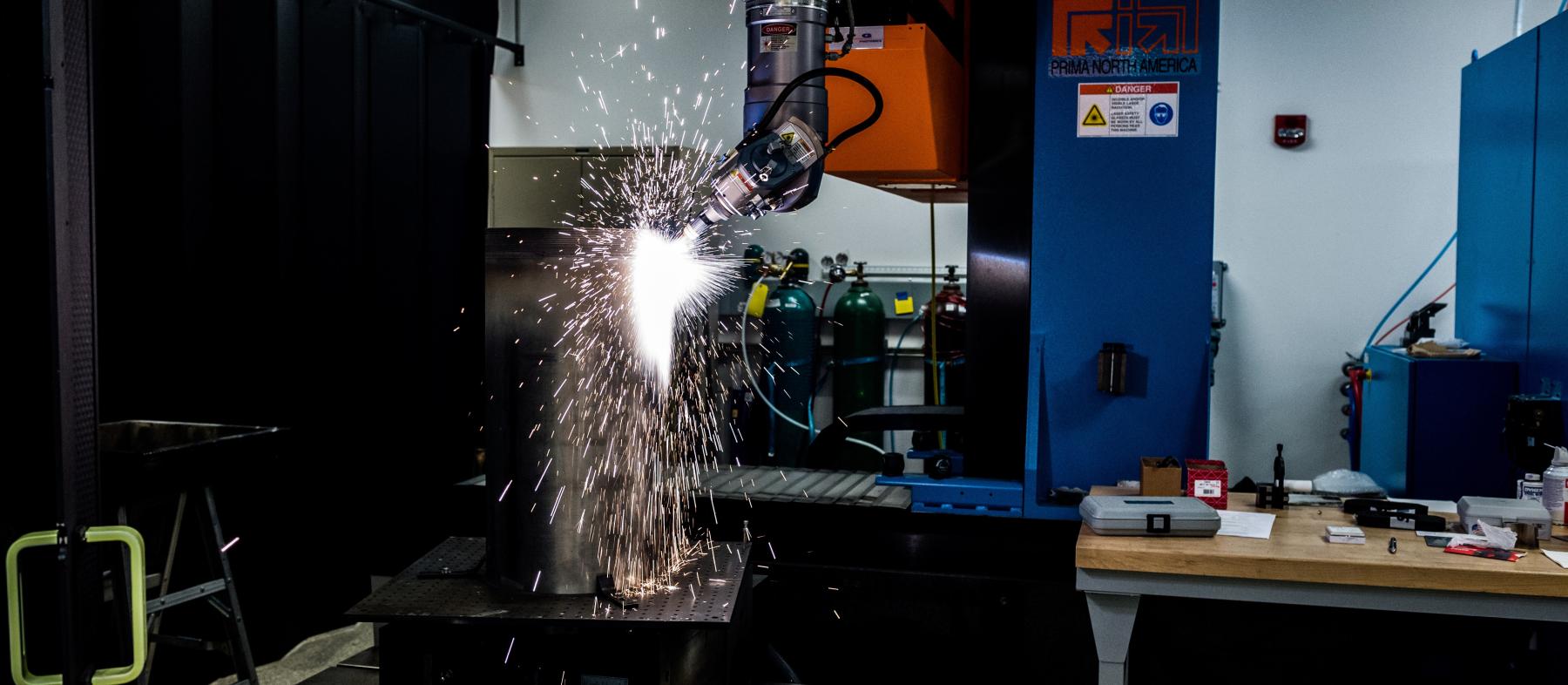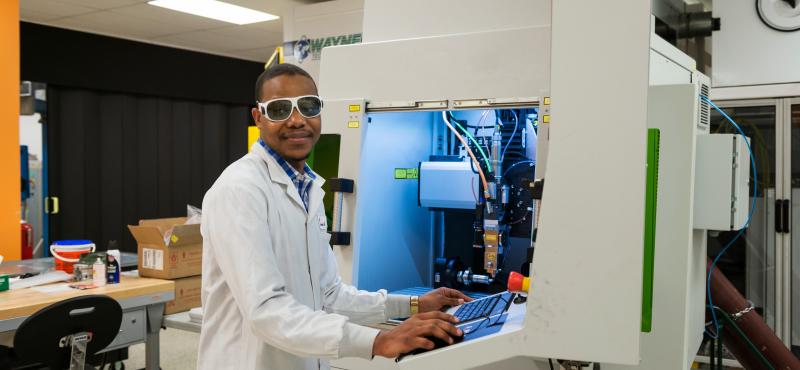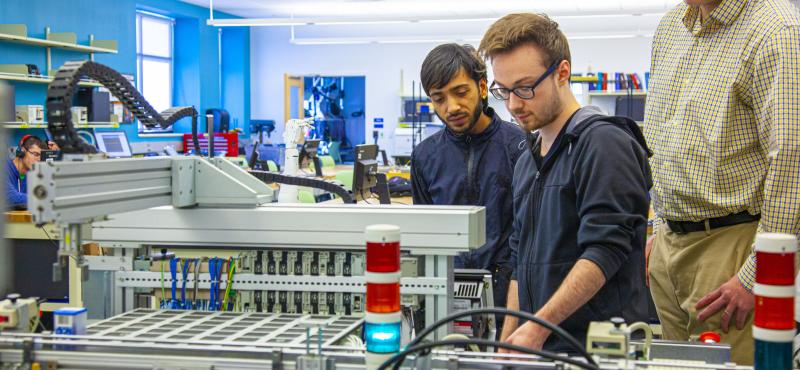Program Goals:
The primary goal of the Photonics Certificate is to provide students an educational pathway to high-wage, high-tech jobs in areas such as manufacturing, telecommunications, medical devices and systems, security systems, clean energy systems, and research throughout Central Massachusetts. A secondary goal is to provide employed individuals with opportunities to upgrade and broaden their skills and knowledge, either to become more effective in their current positions or to open new career paths. Students will also build a foundation of knowledge that forms the basis for further study in electronics and photonics.
Student Learning Outcomes:
Upon completion of the program, graduates will be able to:
- Given schematics, wiring diagrams, mechanical drawings, and/or instructions, build and test electronic and electronically-controlled systems.
- Use multimeters, oscilloscopes, power supplies, and function generators to analyze and troubleshoot circuits.
- Use algebra to analyze and solve problems involving electrical and electronic circuits.
- Assemble electronic systems using proper soldering and wiring techniques.
- Analyze problems involving photonics applications, and propose and evaluate solutions.
- Demonstrate an understanding of electro-optical systems, such as lasers.
- Troubleshoot and repair electro-optical and photonic systems.
- Communicate effectively verbally and in writing.
- Write technical reports using a word processor.
- Collect, sort, and analyze data using a spreadsheet.
- Work effectively as a member of a team toward the solution of problems.
Admissions Process:
Admissions inquiries should be directed to admissions@qcc.mass.edu. Prospective students may apply to the program of their choice by following the enrollment steps at www.QCC.edu/enrollment-steps.
Program Admissions Requirements:
Students should note that some first semester courses carry minimum prerequisites. Refer to the program grid.
- High School Diploma or GED/HiSET.
CORI, SORI, Finger Printing & Drug Testing:
Criminal Offender Record Information (CORI) and Sex Offender Registry Information (SORI) checks are not required. Fingerprinting and drug testing are not required.
Additional Cost:
See the Program Fees page.
Technical Performance Standards:
See the Technical Performance Standards page. (Note: Not all programs have technical performance standards).
Credit for Prior Learning:
Credit for Prior Learning (CPL) allows students to use skills they already have towards a college degree or certificate. Work, life, volunteer and military experience may be translated into credit, allowing students to take fewer classes and earn their degree faster. CPL eliminates redundancies for students who have already earned credentials or mastered skills required for their program of study. Email experience@qcc.mass.edu for more information and eligibility.
Career Outlook:
Please consult the Massachusetts Career Information System at https://masscis.intocareers.org/ or the Occupational Outlook Handbook at www.bls.gov/ooh/ for specific occupational information. The CIP code for this program is 15.0304.
Transfer Articulations & Opportunities:
Prospective students may learn more about transfer articulation agreements at www.QCC.edu/agreements. More information regarding transfer opportunities is available at www.QCC.edu/transfer.




